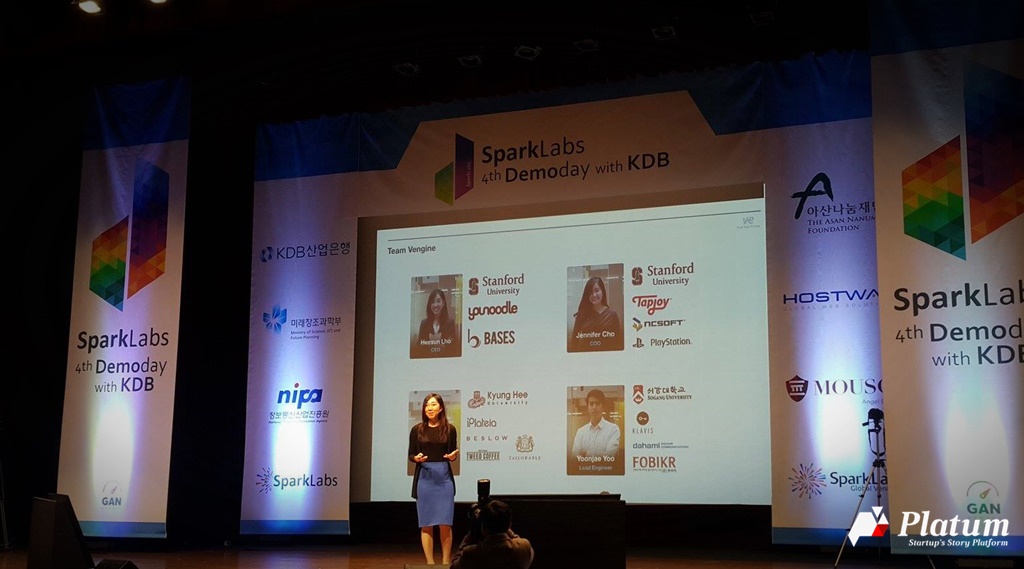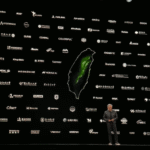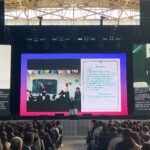
SparkLabs, a startup accelerator for companies seeking global expansion, presented its fourth batch of eight startups in its demo day held in Seoul, South Korea, with over 700 people attend the demo day. With its vision of developing South Korea and Asia’s startup ecosystem, SparkLabs’ accelerator program is known to be one of the most effective ways for startups to go global.
Startups from prior batches came from over 20 countries such as the U.S., Singapore, Japan, China and South Korea. Eight startups were chosen from them, six Korean, 1 Chinese and 1 Silicon Valley team. For 13 weeks, the teams worked hard, receiving mentorship from a top-tier network of entrepreneurs, venture capitalists and executives.
SparkLabs’ fourth batch of eight startups are:
Beacon Doctor
Based in Chengdu, China, Beacon Doctor is a mobile and cloud based platform where doctors can communicate and collaborate. Beacon Doctor provides a social network service for the medical community, and allows doctors to upload patient profiles and get Chinese hospitals’ addresses updated in realtime. The team will launch their iOS app at the end of December.
BuyFi turns payment data into customer information, automating and simplifying customer marketing for small and middle sized businesses. Based in Silicon Valley, it helps customer referrals by analyzing their credit card usage patterns via cloud based analytics. It is also a marketing automation platform. BuyFi continues to grow its payment processor partners and currently has 15,000 merchants. The company was invested by Accel Partners (the first investors to Facebook, Dropbox and Supercell) and Charles River Ventures (the first investors to Twitter, Yammer and Viki).
HUD Technologies
Architect-based programmers at HUD came up with an algorithm to render 3D images by simply using floor plans. With the algorithm they are aiming to create a platform where worldwide users can experience interior spaces through the web. Also, their competitiveness comes from the technology that converts floor plans into 3D just in 2 seconds. So far, they have produced 3D models for 4,500 apartments in the Gangnam area of Seoul.
With the emphasis of eating organic food, home gardeners increased to 85M in US. N.thing develops IoT products that are designed to improve the quality of food consumption. N.thing’s first product, Planty is an Internet-connected smart garden pot helping the users to grow their own plants. Planty provides functions such as giving water remotely, analyzing data and user behavior collected from the device. You can pre-order Planty on Kickstarter in January 2015.
Onnuri DMC
Retargeting ads is a big market for advertisers and is enabled using Cookie, by detecting your location on the web. The problem is that the Cookie doesn’t exist on mobile. Onnuri DMC developed Cross Target platform to solve the problem of cross platform mobile marketing. Cross Target, a data management platform, helps you to deliver mobile advertisement effectively. It analyzes user behavior on mobile devices, providing more relevant advertisements. Onnuri DMC raised US$2 million in Series-A funding from Bokwang V.C. (The speaker noted that it took 10 minutes to decide to invest in them.)
The faster globalization happens, the more opportunities there are for you to visit overseas countries. The problem here is that it costs a lot to rent a room in other countries. Stayes is a platform for those looking for housing from two weeks to a year, connecting you to vacant flats. With a couple of clicks, you can rent rooms at prices 60% lower than the traditional market. Launched in September, they have already recorded US$600,000 in turnover. It’s interesting to note that 80% of their customers are Chinese.
Vengine
It’s said that 89% of hiring failures are due to a poor culture fit with the company while 77% of employees are looking for new opportunities. Problem include lack of reliability from recruitment agencies, insufficient information about the company and the complexity of the recruiting process. Vengine, an interactive career discovery app, solves this problem by guiding users to opportunities based on their skills, work style and goals. Vengine is looking for partners to join their mission to revolutionize the way companies and candidates find each other.
Water Strider
Water Strider has invented a new touch sensor with high resolution and spectra for both surface and air. The technology can be applied to portable devices, electronics, heavy industries and many other fields. Water Strider’s founder has experience in founding companies and going through M&A. The company has made a touch sensor that brings innovation to smartphones, TVs and electronics. The team plans to develop its ASIC chip by mid-2015 for actual commercialization.
If you want to know more about SparkLabs or to apply for their fifth batch, check out their websitehere.
Source : SparkLabs Graduates 4th Batch of Eight Startups in Seoul



![[BLT칼럼] 아이온큐가 특허로 '기술 신뢰도'를 쌓은 법 : 양자컴퓨팅 시대, IP 전략 제시 8ee48ae3a3a11](https://platum.kr/wp-content/uploads/2025/10/8ee48ae3a3a11-150x150.png)



Leave a Comment